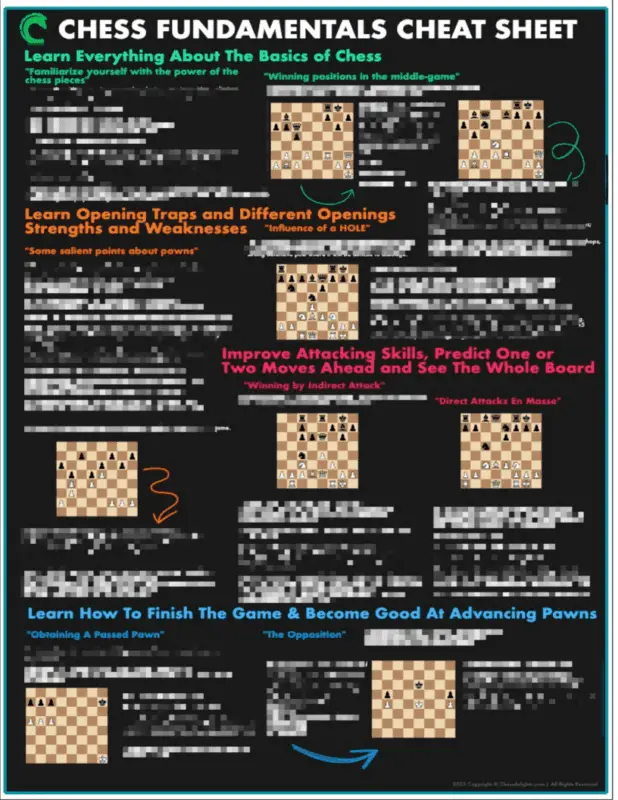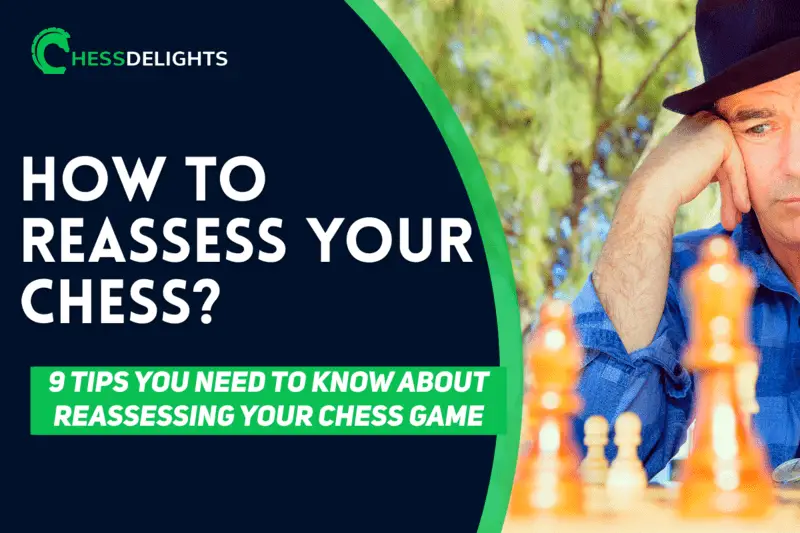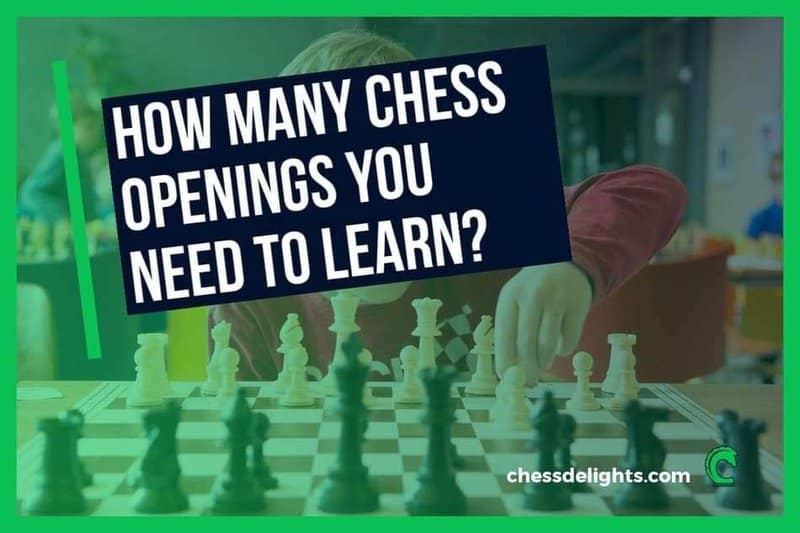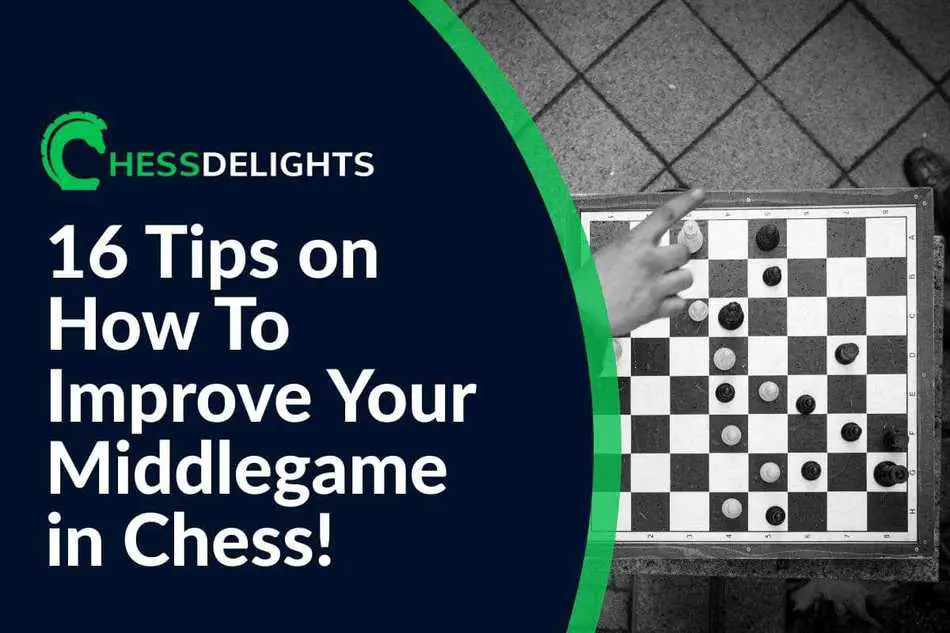I was thinking if I should discuss Silman's book “How to Reassess Your Chess“; I browsed and skimmed a bit, and I liked the book. It does feel like it was written for a serious chess player, as he stated in the introduction.
But, if I were to discuss the book, because some of you on this page may be looking for a review, I would just advise you to get it.
Although, I read some chess enthusiast comments, and they appear to be having some difficulty understanding the book.
Like I said, it looks great—but it's not interactive like the one we have here. However, I would read it and purchase it!
Again, some say you should start with “Winning Chess Tactics” because it is appropriate for chess enthusiasts. You'll need that book if you want to improve your game.
That is my personal opinion. If you're still here and want some tips on how to reassess your chess game, then keep reading!
Table of Contents
9 Tips on how to reassess your chess
Below are some tips for how to reassess your chess. Knowing them will help you evaluate better and improve your game.
1. Be motivated to play better chess
To be motivated enough to reassess your game, you will have to be passionate about the game. You want to learn more. This means you must be willing to sacrifice time and effort to improve your overall game strategy.
2. Study your mistakes
As you play alone and against the computer, you will make mistakes. This is inevitable; however, learning from these mistakes is one way to increase your knowledge of how to play chess. However, don't repeat the same mistakes over and over again. Doing this will only lead to more frustration than improvement.
3. Good study materials are available online nowadays
When looking for chess instruction, do your homework and make sure that the content is well-written, reliable, and relevant. Many videos and articles online can help you with step number two (study your own mistakes). The issues that arise in online media are the difficulty verifying the authenticity and accuracy of the content and finding pertinent study materials on a given subject.
4. Play regularly
Much talk is about the importance of practice when learning to play chess, but what does that mean? Playing regularly refers to playing with others as well as against the computer. Reading about chess now and then is not enough for skill development. Playing games (incredibly competitively) with people of a similar skill level is essential.
5. Focus on your main pieces
A critical factor in learning how to play chess is understanding the importance of the pieces. The most potent pieces can quickly move around the board (riders, queens, and rooks). The least powerful pieces are those that (generally speaking) can't move very quickly or can only move in a straight line (pawns). Winning strategies revolve around understanding the importance of these pieces and what each piece is capable of doing.
6. Master the art of being able to keep your pace
The game of chess is played at many levels, from local tournaments to national championships, international competitions, and even grandmaster-level matches. While learning how to play chess at these different levels, you must understand what skills you need to compete successfully at each level, so it is essential to follow your skill set as you progress in your chess hobby.
7. Play against people where you can feel comfortable
This is an important rule for learning how to play chess, but it is particularly relevant if you don't have a competitive edge. If losing, be careful not to insult or make fun of your opponent. Taunting someone better at chess can easily cause them to play worse and use anger as motivation.
8. Practice makes perfect
This old adage applies particularly well when it comes to playing chess. Playing regularly will refine your skills, allowing for better judgment when making tactical decisions about achieving checkmate or taking over the game completely with a smart move.
9. Keep composed and don't get frustrated
As you gain more experience playing chess, you will learn that mistakes can happen to anyone. Getting angry or frustrated as a beginner will only make it more difficult to play well. Just keep focused on your game plan and stick with it, no matter what happens on the board.
Recommended Reading: If you want to learn more about chess strategies, read this article.
Why is it important to reassess your chess game?
There are many reasons why it's important to reassess your chess game from time to time.
For one, if you're not improving, it may be because you're focusing on the wrong aspects of the game. Are you neglecting practice in order to focus on tactics or strategy? Are your pieces effective and working together for the best outcome? Once you have a better grasp on what's working and what isn't, it'll be much easier to fine-tune your gameplay.
Should you reassess your opponent too?
Professional players always tell me that they play specific openings against specific chess players.
So, I guess it's not enough to just reassess your own game – you also need to take stock of your opponent. Who is your strongest opponent and what can you learn from playing against them? Are there any specific tactics or strategies that they use that you might not be expecting? Seeing as how chess is a vast strategic game, learning about your opponent's strategies can give you a leg up on the competition.
Wrapping Up
That's all I've got! To become a serious chess player, you must learn how to reassess your chess.
To be honest, I'd do the same even if I wasn't competing anymore—pointless it's to play chess if you don't try to improve every aspect of your game.
We don't like losing, especially when we know we could have done better! So, go over your games, reassess your chess, and improve; that's all we need to do!





